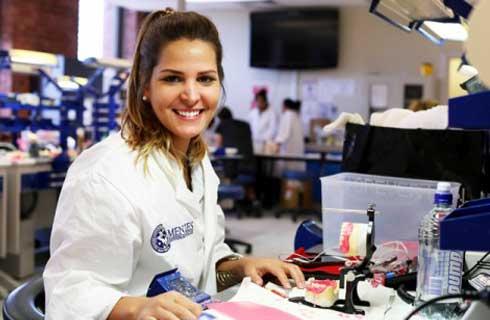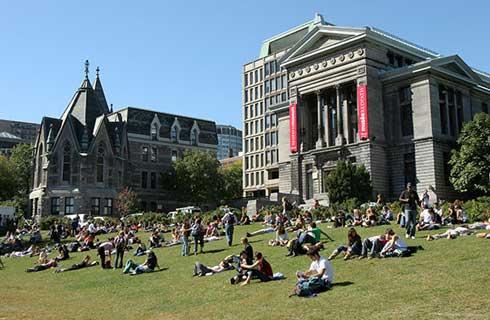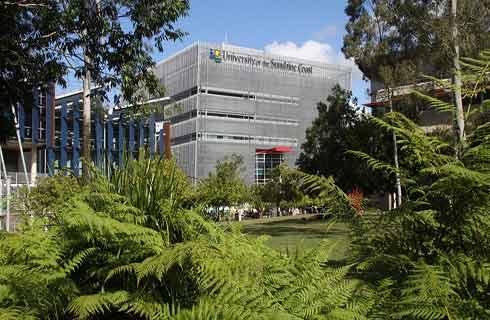老年医学文学硕士
Master of Arts in Gerontology

学历文凭
Masters Degree

专业院系

开学时间

课程时长

课程学费

国际学生入学条件
Meet the admissions standards of the University.
Have an undergraduate GPA of 3.0 or better.
Apply online through CalState Apply. The Office of Graduate Admissions no longer accepts paper applications to graduate programs.
Two letters of recommendation from faculty and/or employers. These should be from individuals who know the candidate well and can address their potential for succeeding in graduate school. The letters do not have to be from faculty members at an academic institution, they can be from supervisors or others familiar with the candidate's work.
A current resume.
Statement of purpose to the SF State M.A. in Gerontology Program. This statement of purpose should describe the following information in a coherent essay (in no more than four pages, double-spaced):
Life experiences that have led you to an interest in gerontology
Background in gerontology, including any work or volunteer experience you might have
Areas of specific interests in the gerontology, including what has led you to these specific interests
Career and professional goals and aspiration
How the M. A. in Gerontology degree will be helpful and consistent with your career goals and aspirations
Why this is the right time in your career to come into a Gerontology program and seek the degree
Why the SF State M.A. in Gerontology degree program is a good fit for you and your career and professional goals
IELTS - 6.5, TOEFL IBT-80, PBT-550, PTE- 59
Have an undergraduate GPA of 3.0 or better.
Apply online through CalState Apply. The Office of Graduate Admissions no longer accepts paper applications to graduate programs.
Two letters of recommendation from faculty and/or employers. These should be from individuals who know the candidate well and can address their potential for succeeding in graduate school. The letters do not have to be from faculty members at an academic institution, they can be from supervisors or others familiar with the candidate's work.
A current resume.
Statement of purpose to the SF State M.A. in Gerontology Program. This statement of purpose should describe the following information in a coherent essay (in no more than four pages, double-spaced):
Life experiences that have led you to an interest in gerontology
Background in gerontology, including any work or volunteer experience you might have
Areas of specific interests in the gerontology, including what has led you to these specific interests
Career and professional goals and aspiration
How the M. A. in Gerontology degree will be helpful and consistent with your career goals and aspirations
Why this is the right time in your career to come into a Gerontology program and seek the degree
Why the SF State M.A. in Gerontology degree program is a good fit for you and your career and professional goals
IELTS - 6.5, TOEFL IBT-80, PBT-550, PTE- 59
IDP—雅思考试联合主办方

雅思考试总分
6.5
- 雅思总分:6.5
- 托福网考总分:80
- 托福笔试总分:550
- 其他语言考试:PTE- 59
CRICOS代码:
申请截止日期: 请与IDP联系 以获取详细信息。
课程简介
SF State的老年学文学硕士课程于1986年成立,是加利福尼亚州立大学和加利福尼亚大学系统中第一个,也是最古老的研究生课程。该计划致力于通过跨学科方法满足社会当前和未来需求的专业人士的高等教育,以应对人口老龄化的多重挑战,开展应用研究以增加有关衰老问题和过程的知识体系,以及在社区中应用老年医学学科以提倡改善老年人的护理质量和生活质量。
The M.A. in Gerontology is designed to: 1) emphasize the broad, interdisciplinary nature of issues which relate to and influence older adults, 2) provide students with the academic expertise, professional experience and research capabilities necessary to pursue advanced study at the doctoral and professional level, 3) prepare students for professional practice and leadership positions in the public and private sectors where gerontological knowledge is required, 4) empower students with a vision of diversity, social justice, consumer-driven services and global issues to promote intergenerational understanding and 5) invest in students a working knowledge of theoretical foundations and prepare students with tools to use quantitative and qualitative methods in applied research for solving a variety of practical problems in the community and link the micro and macro aspects of aging.
The M.A. in Gerontology is designed to: 1) emphasize the broad, interdisciplinary nature of issues which relate to and influence older adults, 2) provide students with the academic expertise, professional experience and research capabilities necessary to pursue advanced study at the doctoral and professional level, 3) prepare students for professional practice and leadership positions in the public and private sectors where gerontological knowledge is required, 4) empower students with a vision of diversity, social justice, consumer-driven services and global issues to promote intergenerational understanding and 5) invest in students a working knowledge of theoretical foundations and prepare students with tools to use quantitative and qualitative methods in applied research for solving a variety of practical problems in the community and link the micro and macro aspects of aging.
相关申请
 预科
预科 奖学金
奖学金 实习机会
实习机会 在校学习
在校学习 跨境学习
跨境学习 校园授课-线上开始
校园授课-线上开始 在线/远程学习
在线/远程学习
开学时间&学费
学费信息仅供参考,请与IDP联系以获取详细信息
| 开学时间 | 时长 | 学费 | 地点 |
|---|
本校相关课程

工商管理理学学士-会计
学历文凭
Bachelor Degree
开学日期
课程费用总额


Bachelor of Science in Business Administration - Decision Sciences
学历文凭
Bachelor Degree
开学日期
课程费用总额


工商管理理学学士-金融
学历文凭
Bachelor Degree
开学日期
课程费用总额


工商管理理学学士-一般业务
学历文凭
Bachelor Degree
开学日期
课程费用总额


工商管理理学学士-信息系统
学历文凭
Bachelor Degree
开学日期
课程费用总额


工商管理理学学士-国际商务
学历文凭
Bachelor Degree
开学日期
课程费用总额

其他相关课程

老年医学学士学位(3年)
 劳伦森大学
劳伦森大学学历文凭
Bachelor Degree
开学日期
课程费用总额


文化研究文学硕士-衰老研究
 特伦特大学
特伦特大学学历文凭
Masters Degree
开学日期
课程费用总额


安大略省社会服务工作者大学文凭-老年医学
 圣力嘉学院
圣力嘉学院学历文凭
Bachelor Degree
开学日期
课程费用总额


老年医学文学硕士
 西蒙菲莎大学
西蒙菲莎大学学历文凭
Masters Degree
开学日期
课程费用总额


老年医学哲学博士
 西蒙菲莎大学
西蒙菲莎大学学历文凭
Ph.D.
开学日期
课程费用总额


安大略大学助听器文凭专家
 康尼斯托加理工学院
康尼斯托加理工学院学历文凭
Bachelor Degree
开学日期
课程费用总额










 美国
美国
